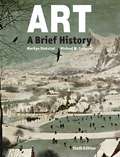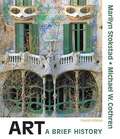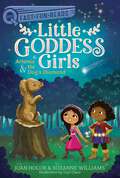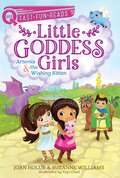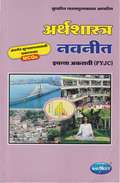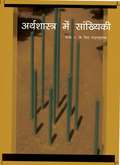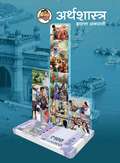- Table View
- List View
Art: A Brief History
by Marilyn Stokstad Michael W. CothrenFor Art History Survey courses The most student-friendly, contextual, and inclusive art history survey text on the market Now in its sixth edition, Art: A Brief History continues to balance formal analysis with contextual art history in order to engage a diverse student audience. Authors Marilyn Stokstad and Michael Cothren, both scholars as well as teachers, share a common vision that survey courses should be filled with as much enjoyment as learning, and that they should foster an enthusiastic, as well as an educated, public for the visual arts. By treating the visual arts as one component of a vibrant cultural landscape (which also includes politics, religion, economics, and more), Art: A Brief History helps students recognize and appreciate the central role that art and architecture have played in human history.
Art: A Brief History (4th edition)
by Marilyn Stokstad Michael W. CothrenThis book features excellent scholarship, takes a global approach with an emphasis on the Western tradition in art. It reflects new interests and issues, expanding the topic to include women and minorities, and showing media and techniques other than painting, sculpture, and architecture. This book serves as an introduction to the history of art and a ready reference for people working in the arts, including museum docents, and art gallery employees, owners, and managers.
Artemis & the Dog's Diamond: A QUIX Book (Little Goddess Girls #12)
by Joan Holub Suzanne WilliamsArtemis and Orion help each other on their quests in this twelfth Little Goddess Girls story—part of the Aladdin QUIX line!Artemis is on the final quest to bring the last missing jewel—a diamond—back to Zeus. She ends up in the Forest of Lost and Found, where she meets a young hunter named Orion. He&’s looking for something, too: a dog! With some extra magic and the power of friendship, can Artemis and Orion both find what they are looking for?
Artemis & the Wishing Kitten: Little Goddess Girls 8 (QUIX)
by Joan Holub Suzanne WilliamsJoin little Artemis on a sweet adventure in this eighth Little Goddess Girls story—part of the Aladdin QUIX line!The Goddess Girls are on their way to the Sparkle City Pet Show when they discover a cute, pink kitten on the Hello Brick Road. Two boys, Prince Paris and Odysseus, both claim the kitten is theirs. Can Artemis figure out which boy is telling the truth and get the sweet kitty back home?
Arthashastra (Core Course 1 and Core Course 2) B.A (Hons.) Sem-I -Ranchi University, N.P.U
by J. P. MishraArthashastra text book According to the Latest Syllabus based on Choice Based Credit System (CBCS) for Sem-I (Core Course 1 and Core Course 2) from Ranchi University, Nilambar Pitambar University in hindi.
Arthashastra B.A (Hons.) Sem-I -Ranchi University, N.P.U
by V. C. Sinha Pushpa SinhaArthashastra textbook According to the Latest Syllabus based on the Choice Based Credit System (CBCS) for Sem-I from Ranchi University, Nilambar Pitambar University in Hindi.
Arthashastra Digest class 11 - Maharashtra Board Guide: अर्थशास्त्र डाइजेस्ट इयत्ता 11वी महाराष्ट्र बोर्ड मार्गदर्शन
by Shri Navneetअर्थशास्त्र इयत्ता 11वी चे पुस्तक नवनीत एज्युकेशन लिमिटेडने मराठी भाषेमध्ये प्रकाशित केलेले आहे, या मार्गदर्शकातील प्रत्येक प्रकरणात सुरुवातीला महत्त्वाच्या मुद्द्यांचे स्पष्टीकरण देण्यात आले आहे. प्रस्तुत मार्गदर्शकात दीर्घोत्तरी, लघूत्तरी आणि वस्तुनिष्ठ अशा सर्व प्रकारच्या प्रश्नांचा समावेश केलेला असून, त्यांची सुबोध भाषेत मुद्देसूद, समर्पक व आदर्श उत्तरे देण्यात आली आहेत. अंतर्गत मूल्यमापन चाचणीच्या तयारीसाठी प्रत्येक प्रकरणावर बहुपर्यायी प्रश्न (MCQs) उत्तरांसह देण्यात आले आहेत.या मार्गदर्शकाच्या सुरुवातीला विद्यार्थ्यांच्या मार्गदर्शनासाठी प्रश्नपत्रिकेचा आराखडा देण्यात आला आहे. या पुस्तकाच्या अखेरीस प्रथम व द्वितीय सत्रांसाठी नमुना प्रश्नपत्रिका तसेच प्रथम व द्वितीय सत्र यांसाठी अंतर्गत मूल्यमापन चाचणीच्या नमुना प्रश्नपत्रिकाही देण्यात आल्या आहेत.
Arthashastra Me Praranbhik Ganiteey Paddhatiya B.A (Hons.) Sem-II -Ranchi University, N.P.U Part 1
by Jai MishraArthashastra text book According to the Latest Syllabus based on Choice Based Credit System (CBCS) for Sem-II from Ranchi University, Nilambar Pitambar University in hindi.
Arthashastra Me Praranbhik Ganiteey Paddhatiya B.A (Hons.) Sem-II -Ranchi University, N.P.U Part 2
by Jai MishraArthashastra textbook According to the Latest Syllabus based on the Choice Based Credit System (CBCS) for Sem-II from Ranchi University, Nilambar Pitambar University in Hindi.
Arthashastra Mein Sankhyiki class 11 - NCERT - 23: अर्थशास्त्र में सांख्यिकी ११वीं कक्षा - एनसीईआरटी - २३
by Rashtriy Shaikshik Anusandhan Aur Prashikshan Parishadअर्थशास्त्र में सांख्य़िकी 11वीं कक्षा का राष्ट्रीय शैक्षिक अनुसंधान और प्रशिक्षण परिषद् ने पुस्तक हिंदी भाषा में प्रकाशित किया गया है, इस पुस्तक में कुल आठ पाठ हैं, साथ ही साथ परिशिष्ट का भाग भी किताब के अंत में दिया है। अर्थशास्त्र में व्यक्ति और समाज अपनी आवश्यकताओं को पूरा करने के लिए तथा समाज के विभिन्न व्यक्तियों एवं समूहों में उपभोग हेतु वितरित करने के लिए इसका चुनाव कैसे करे कि वैकल्पिक प्रयोग वाले अल्प संसाधनों का प्रयोग विभिन्न वस्तुओं के उत्पादन में हो सके, यह अर्थशास्त्र में अध्ययन किया है।
Arthashastra class 10 - Karnataka Board: ಅರ್ಥಶಾಸ್ತ್ರ ಹತ್ತನೇ ತರಗತಿ
by Karnataka Patyapustaka Sanghaಇದು ಅರ್ಥಶಾಸ್ತ್ರ ದ ಪಠ್ಯಕ್ರಮದ ಹಣವು ಆಕರ್ಷಕ ವಿಷಯವಾಗಿದೆ ಮತ್ತು ವಿದ್ಯಾರ್ಥಿಗಳು ವಿಷಯದ ಕಡೆಗೆ ಕುತೂಹಲದಿಂದ ತುಂಬಿರುತ್ತಾರೆ. ಆದ್ದರಿಂದ, ಅವರಿಗೆ ಈ ಅಂಶವನ್ನು ಕಂಡುಹಿಡಿಯಲು, ಈ ಅಧ್ಯಾಯವನ್ನು 10ನೇ ತರಗತಿಯ ಅರ್ಥಶಾಸ್ತ್ರಕ್ಕೆ ಸೇರಿಸಲಾಗಿದೆ. ಹಣದ ಇತಿಹಾಸ ಮತ್ತು ವಿವಿಧ ಸಮಯಗಳಲ್ಲಿ ವಿವಿಧ ರೂಪಗಳನ್ನು ಹೇಗೆ ಬಳಸಲಾಗಿದೆ ಎಂಬುದನ್ನು ಈ ಅಧ್ಯಾಯದಲ್ಲಿ ವಿವರಿಸಲಾಗಿದೆ.
Arthashastra class 11 - Maharashtra Board: अर्थशास्त्र इयत्ता अकरावी - महाराष्ट्र बोर्ड
by Maharashtra Rajya Pathyapustak Nirmiti Va Abhysakram Sanshodhan Mandal Puneअर्थशास्त्र इयत्ता अकरावी हे पुस्तक महाराष्ट्र राज्य पाठ्यपुस्तक निर्मिती व अभ्यासक्रम संशोधन मंडळ, पुणे यांनी लेखन केले आहे तसेच श्री. विवेक उत्तम गोसावी यांनी हे पुस्तक मराठी भाषेमध्ये प्रकाशित केले आहे. पाठ्यपुस्तकामध्ये दैनंदिन व्यवहारात वापरल्या जाणाऱ्या अर्थशास्त्रीय संकल्पना उदाहरणार्थ, पैसा, आर्थिक वृद्धी व विकास, आर्थिक सुधारणा, आर्थिक नियोजन, संख्याशास्त्र इत्यादींचा ऊहापोह करण्यात आला आहे. या पाठ्यपुस्तकाची मांडणी ही अर्थशास्त्रीय भाषेशी कोणतीही तडजोड न करता सोप्या व साध्या भाषाशैलीचा वापर करून केली आहे. अर्थशास्त्राच्या संकल्पना स्पष्ट होण्यासाठी आवश्यक तेथे विविध चित्राकृती, आलेख, तक्ते इत्यादींचा वापर केला आहे. अर्थशास्त्र विषयातील अवघड संकल्पना, शब्द यांसाठी पाठ्यपुस्तकाच्या शेवटी परिशिष्टही देण्यात आले आहे.
Arthashastra class 12 - GSTB Guidebook: અર્થશાસ્ત્ર ધોરણ ૧૨ - ગાઇડબૂક
by Navneetધોરણ ૧૨ ગુજરાતી માધ્યમ માટે નવનીત અર્થશાસ્ત્ર ડાયજેસ્ટ. ગુજરાત રાજ્ય બોર્ડના અભ્યાસક્રમ મુજબ.
Arthashastra class 12 - Maharashtra Board: अर्थशास्त्र इयत्ता बारावी - महाराष्ट्र बोर्ड
by Maharashtra Rajya Pathyapustak Nirmiti Va Abhysakram Sanshodhan Mandal Puneअर्थशास्त्र इयत्ता बारावी हे महाराष्ट्र राज्य पाठ्यपुस्तक निर्मिती व अभ्यासक्रम संशोधन मंडळ, पुणे यांनी या पुस्तकाचे लेखन केले आहे तसेच श्री. विवेक उत्तम गोसावी यांनी हे पुस्तक मराठी भाषेमध्ये प्रकाशित केले आहे. या पाठपुस्तकात महाराष्ट्र राज्य पाठ्यपुस्तक निर्मिती व अभ्यासक्रम संशोधन मंडळ (बालभारती), पुणे यांची निर्मिती असलेल्या अर्थशास्त्राच्या ह्या पुस्तकात सूक्ष्म अर्थशास्त्र आणि स्थूल अर्थशास्त्र ह्या दोन्हींचा परामर्ष घेण्यात आला आहे. उपयोगिता, मागणी, पुरवठा यांचे सिद्धांत, बाजारांचे प्रकार इत्यादी सूक्ष्म अर्थशास्त्रीय संकल्पनांचे विस्तृत विवेचन केले आहे. सार्वजनिक वित्त व्यवहार, भारतातील नाणेबाजार व भांडवल बाजार, विदेशी व्यापार ह्या स्थूल अर्थशास्त्रीय संकल्पना या अभ्यासक्रमात प्रथमच विद्यार्थ्यांसमोर ठेवत आहोत. महत्त्वपूर्ण बदल म्हणजे संख्याशास्त्रातील निर्देशांक मापकाचा ह्या अभ्यासक्रमात अंतर्भाव केला आहे.
Arthashastra class 8 - Karnataka Board: ಅರ್ಥಶಾಸ್ತ್ರ ಎಂಟನೇ ತರಗತಿ
by Karnataka Patyapustaka Sanghaಇದು ಅರ್ಥಶಾಸ್ತ್ರ ದ ಪಠ್ಯಕ್ರಮದ ಹಣವು ಆಕರ್ಷಕ ವಿಷಯವಾಗಿದೆ ಮತ್ತು ವಿದ್ಯಾರ್ಥಿಗಳು ವಿಷಯದ ಕಡೆಗೆ ಕುತೂಹಲದಿಂದ ತುಂಬಿರುತ್ತಾರೆ. ಆದ್ದರಿಂದ, ಅವರಿಗೆ ಈ ಅಂಶವನ್ನು ಕಂಡುಹಿಡಿಯಲು, ಈ ಅಧ್ಯಾಯವನ್ನು 8ನೇ ತರಗತಿಯ ಅರ್ಥಶಾಸ್ತ್ರದ ಪಠ್ಯಪುಸ್ತಕಗಳನ್ನೂ ನಿಯೋಜಿಸಲಾಗಿದೆ.
Arthashastra class 9 - JCERT: अर्थशास्त्र ९वीं कक्षा - जेसीईआरटी
by Jharkhand Shaikshik Anusandhan Evam Prashikshan Parishad Ranchiयह पुस्तक "अर्थशास्त्र" कक्षा 9 के छात्रों के लिए झारखंड शैक्षिक अनुसंधान एवं प्रशिक्षण परिषद् द्वारा प्रकाशित की गई है, जिसमें चार प्रमुख अध्याय हैं। पहला अध्याय "पालमपुर गाँव की कहानी" के माध्यम से उत्पादन और संसाधन प्रबंधन की अवधारणाएँ समझाता है, दूसरा अध्याय "संसाधन के रूप में लोग" शिक्षा, स्वास्थ्य और कौशल के महत्व पर जोर देता है, जिसमें सकल और विलास की कहानियों के जरिए मानव संसाधन के विकास का महत्व बताया गया है। तीसरा अध्याय "निर्धनता: एक चुनौती" भारत में गरीबी की समस्या, इसके कारण और निवारण के उपायों की चर्चा करता है, जबकि चौथा अध्याय "भारत में खाद्य सुरक्षा" देश में खाद्य सुरक्षा के महत्व, सार्वजनिक वितरण प्रणाली और बफर स्टॉक जैसे उपायों की व्याख्या करता है। यह पुस्तक सरल भाषा और रोचक उदाहरणों के माध्यम से छात्रों को अर्थशास्त्र की बुनियादी अवधारणाओं को समझने में सहायक है।
Arthashastra class 9 - Karnataka Board: ಅರ್ಥಶಾಸ್ತ್ರ ಒಂಬತ್ತನೇ ತರಗತಿ
by Karnataka Patyapustaka Sanghaಇದು ಜನರ ಮೌಲ್ಯದೊಂದಿಗೆ ಹೇಗೆ ಸಂವಹನ ನಡೆಸುತ್ತಾರೆ ಎಂಬುದರ ಅಧ್ಯಯನವಾಗಿದೆ. ಆರ್ಥಿಕತೆಯ ಮೂಲಭೂತ ಅಂಶಗಳನ್ನು ಕಂಡುಹಿಡಿಯಲು ಈ ಅಧ್ಯಾಯವನ್ನು 9ನೇ ತರಗತಿಯ ಅರ್ಥಶಾಸ್ತ್ರದಲ್ಲಿ ವಿವರಿಸಿದ್ದಾರೆ.
Arthashastra class 9 - NCERT - 23: अर्थशास्त्र ९वीं कक्षा - एनसीईआरटी - २३
by Rashtriy Shaikshik Anusandhan Aur Prashikshan Parishadअर्थशास्त्र 9वीं कक्षा का राष्ट्रीय शैक्षिक अनुसंधान और प्रशिक्षण परिषद् ने पुस्तक हिंदी भाषा में प्रकाशित किया गया है, इस पाठ्यपुस्तक में चार खंड और दिए गए है। पाठ्यपुस्तक में चार अध्याय दिए है - अध्याय एक पालमपूर गाँव की कहानी, अध्याय दो संसाधन के रुप में लोग, अध्याय तीन निर्धनताः एक चुनौती और अध्याय चार भारत मे खाद्य सुरक्षा आदी के विषय पर चर्चा की गई है।
Arthashastra mein Sankhiki (Chapter 1 to chapter 5) class 11 - S.C.E.R.T Raipur - Chhattisgarh Board: अर्थशास्त्र में सांख्यिकी (अध्याय 1 ते अध्याय 5) कक्षा 11 - एस.सी.ई.आर.टी. रायपुर - छत्तीसगढ़ बोर्ड
by Raipur C. G. Rajya Shaikshik Anusandhan Aur Prashikshan Parishadअर्थशास्त्र में सांख्यिकी (अध्याय 1 ते अध्याय 5) कक्षा 11 वी का राज्य शैक्षिक अनुसंधान और प्रशिक्षण परिषद् छत्तीसगढ़ रायपुर ने पुस्तक हिंदी भाषा में प्रकाशित किया गया है, इस पाठपुस्तक में 9 अध्याय दिये गये है, जिसमे हर अध्याय के विवरण कि व्याख्या कि गई है ।
Arthashastra mein Sankhiki (Chapter 6 to Last chapter) class 11 - S.C.E.R.T Raipur - Chhattisgarh Board: अर्थशास्त्र में सांख्यिकी (अध्याय 6 ते अंतिम अध्याय) कक्षा 11 - एस.सी.ई.आर.टी. रायपुर - छत्तीसगढ़ बोर्ड
by Raipur C. G. Rajya Shaikshik Anusandhan Aur Prashikshan Parishadअर्थशास्त्र में सांख्यिकी (अध्याय 6 ते अंतिम अध्याय) कक्षा 11 वी का राज्य शैक्षिक अनुसंधान और प्रशिक्षण परिषद् छत्तीसगढ़ रायपुर ने पुस्तक हिंदी भाषा में प्रकाशित किया गया है, इस पाठपुस्तक में 9 अध्याय दिये गये है, जिसमे हर अध्याय के विवरण कि व्याख्या कि गई है ।
Arthashastra mein Sankhiki class 11 - NCERT: अर्थशास्त्र में सांख्य़िकी कक्षा 11 - एनसीईआरटी
by Rashtriy Shaikshik Anusandhan Aur Prashikshan Parishadअर्थशास्त्र में सांख्य़िकी 11वीं कक्षा का राष्ट्रीय शैक्षिक अनुसंधान और प्रशिक्षण परिषद् ने पुस्तक हिंदी भाषा में प्रकाशित किया गया है, इस पुस्तक में कुल नौ पाठ हैं, साथ ही साथ परिशिष्ट का भाग भी किताब के अंत में दिया है। अर्थशास्त्र में व्यक्ति और समाज अपनी आवश्यकताओं को पूरा करने के लिए तथा समाज के विभिन्न व्यक्तियों एवं समूहों में उपभोग हेतु वितरित करने के लिए इसका चुनाव कैसे करे कि वैकल्पिक प्रयोग वाले अल्प संसाधनों का प्रयोग विभिन्न वस्तुओं के उत्पादन में हो सके, यह अर्थशास्त्र में अध्ययन किया है।
Arthashastrachi Multatve Second Semester FYBA New NEP Syllabus - RTMNU: अर्थशास्त्राची मूलतत्त्वे दुसरे सत्र एफ.वाय.बी.ए. नवीन एन.इ.पी. अभ्यासक्रम - राष्ट्रसंत तुकडोजी महाराज नागपूर विद्यापीठ
by Prof. B. L. Jibhkate“अर्थशास्त्राची मूलतत्त्वे” हे प्रा. बी. एल. जिभकाटे लिखित पुस्तक बी.ए. प्रथम वर्षाच्या दुसऱ्या सत्रासाठी नवीन शैक्षणिक धोरण २०२० नुसार तयार करण्यात आले आहे. हे पुस्तक अर्थशास्त्राचे प्राथमिक पण मूलभूत पैलू सुलभ भाषेत स्पष्ट करते. पुस्तकात सूक्ष्म आणि स्थूल अर्थशास्त्राचे सिद्धांत, राष्ट्रीय उत्पन्न, मुद्रा, मागणी-पुरवठा, उपभोग, उत्पादन, बाजार, तसेच किंमतनिर्धारण इत्यादी संकल्पनांचा समावेश आहे. लेखकाने विद्यार्थ्यांना समजण्यास सोपे जावे यासाठी उदाहरणांचा वापर करून विविध व्याख्या आणि सिद्धांतांचे सुलभ विश्लेषण केले आहे. ॲडम स्मिथ, मार्शल आणि रॉबिन्स यांच्या व्याख्यांच्या तुलनात्मक अभ्यासातून अर्थशास्त्राचे स्वरूप, त्याची व्याप्ती, मर्यादा व महत्त्व समजावून सांगितले आहे. तसेच आधुनिक काळात अर्थशास्त्र हे केवळ एक शास्त्र न राहता व्यवहार व धोरणात्मक पातळीवर प्रभाव टाकणारे ज्ञानकेंद्र बनले असल्याचे दाखवून दिले आहे. सूक्ष्मदृष्टिकोनातून व्यक्ती, कुटुंब, उद्योग या घटकांचा, तर स्थूलदृष्टिकोनातून राष्ट्रीय उत्पन्न, चलनविषयक धोरण, रोजगार इत्यादी बाबींचा समावेश अभ्यासात केला जातो. विद्यार्थ्यांना परीक्षेसाठी उपयुक्त ठरेल अशी रचना असून प्रत्येक घटकाचे उपविभाग व प्रश्नसंचही समाविष्ट आहेत. त्यामुळे हे पुस्तक विद्यार्थ्यांना केवळ अभ्यासासाठी नव्हे तर विचारप्रवृत्त करणारे मार्गदर्शनही करते.
Arthik Sarvekshan Ani Kendriya Arthasankalpa Second Semester FYBA New NEP Syllabus - RTMNU: आर्थिक सर्वेक्षण आणि केंद्रीय अर्थसंकल्प दुसरे सत्र एफ.वाय.बी.ए. नवीन एन.इ.पी. अभ्यासक्रम - राष्ट्रसंत तुकडोजी महाराज नागपूर विद्यापीठ
by Prof. Dr. Rakshit Madan Bagdeराष्ट्रसंत तुकडोजी महाराज नागपूर विद्यापीठाच्या (RTMNU) नवीन राष्ट्रीय शैक्षणिक धोरण (NEP) 2020 अंतर्गत प्रथम वर्ष बी.ए. (FYBA) अर्थशास्त्र अभ्यासक्रमात आर्थिक सर्वेक्षण आणि केंद्रीय अर्थसंकल्प हा महत्त्वाचा विषय समाविष्ट आहे. या पुस्तकात "आर्थिक सर्वेक्षण आणि केंद्रीय अर्थसंकल्प" हा दस्तऐवज भारताच्या आर्थिक परिस्थितीचे मूल्यमापन करून त्यावर आधारित धोरणात्मक निर्णय घेण्यासाठी महत्त्वाचा आहे. आर्थिक सर्वेक्षण हा आर्थिक आढावा देतो, ज्यात आर्थिक वाढ, वित्तीय स्थिरता, रोजगाराची परिस्थिती, महागाई, आणि सरकारी उपक्रमांचा समावेश असतो. केंद्रीय अर्थसंकल्प हा सरकारच्या आगामी आर्थिक धोरणांचे आणि निधी वाटपाचे औपचारिक विधान असते. यात महसूल, खर्च, करप्रणाली, विविध क्षेत्रांसाठी अनुदाने, आणि सामाजिक कल्याण योजनांची रूपरेषा दिली जाते. हा दस्तऐवज अर्थव्यवस्थेच्या भविष्यातील दिशा स्पष्ट करत असल्याने विद्यार्थ्यांसाठी तसेच अभ्यासकांसाठी महत्त्वाचा ठरतो.
Arthik Vikas Ki Samajh class 10 - Himachal Pradesh Board: आर्थिक विकास की समझ कक्षा १० - हिमाचल प्रदेश बोर्ड
by Himachal Pradesh Board of School Education - Dharamshalaहिमाचल प्रदेश स्कूल शिक्षा बोर्ड, धर्मशाला द्वारा प्रकाशित कक्षा 10 के लिए "आर्थिक विकास की समझ" का डिजिटल संस्करण, 2013 से 2022 तक की विभिन्न संस्करणों और पुनर्मुद्रितियों को शामिल करता है। इसका सारांश पाठ्यक्रम और शिक्षण प्रक्रिया के माध्यम से शिक्षकों और छात्रों के बीच एक सेतु के रूप में काम करता है। यह मूल्यांकन, संबोधन, और अच्छी तरह से प्रस्तुत सामग्री की महत्वता पर जोर देता है। शिक्षा में सुधार की आवश्यकता पर ध्यान देते हुए राष्ट्रीय पाठ्यचर्चा रूपरेखा 2005 और परीक्षा सुधारों पर राष्ट्रीय फोकस समूह के स्थिति पत्र ने परीक्षाओं में पूछे जाने वाले प्रश्नों के तरीकों में बदलाव के लिए अपील की है। इस पुस्तक में पूछे गए प्रश्न रटने को बढ़ावा देने वाली मूल्यांकन प्रणाली से हटकर पाठकों की रचनात्मक सोच, कल्पनाशीलता, प्रत्युत्तर और विश्लेषण क्षमता को धारदार बनाने वाली प्रणाली अपनायी गई है। यहाँ दिए गए उदाहरणों के आधार पर शिक्षक अतिरिक्त प्रश्नों को भी तैयार कर सकते हैं। इस पुस्तक को तैयार करते समय हमने अनेक संदर्भ सामग्रियों का उपयोग किया है। इसके अलावा समाचार पत्रों की अनेक कतरनों, सरकारी एवं गैर सरकारी संगठनों की रिपोर्टों का भी उपयोग किया है। इनमें से कुछ का उल्लेख शिक्षक के लिए निर्देश में किया गया है और कुछ पुस्तक के अन्त में सुझावित पाठ्य-सामग्रियों में दिए गए हैं।
Arthik Vikas Ki Samajh class 10 - JCERT: आर्थिक विकास की समझ १०वीं कक्षा - जेसीईआरटी
by Jharkhand Shaikshik Anusandhan Evam Prashikshan Parishad Ranchiआर्थिक विकास से जुड़ी कक्षा 10 की सामाजिक विज्ञान की पाठ्यपुस्तक "आर्थिक विकास की समझ" का उद्देश्य छात्रों को भारतीय अर्थव्यवस्था के विकास की प्रक्रिया और उसके विभिन्न पहलुओं से परिचित कराना है। यह पाठ्यपुस्तक छात्रों को तीन प्रमुख आर्थिक क्षेत्रों: कृषि, विनिर्माण और सेवा के आधार पर आर्थिक विकास की व्याख्या करती है। इसके साथ ही इसमें मानव विकास के पहलुओं जैसे स्वास्थ्य, शिक्षा, और जीवन की गुणवत्ता को भी महत्वपूर्ण माना गया है। पाठ्यपुस्तक में बताया गया है कि विकास केवल आर्थिक समृद्धि तक सीमित नहीं है, बल्कि यह मानव जीवन की बेहतरी के लिए आवश्यक अन्य मानकों जैसे शिशु मृत्यु दर, साक्षरता दर, और जीवन प्रत्याशा को भी शामिल करता है। इसमें विभिन्न राज्यों के उदाहरण के माध्यम से यह समझाया गया है कि उच्च आय वाले राज्य भी कभी-कभी अन्य महत्वपूर्ण क्षेत्रों में पीछे रह सकते हैं, जैसे स्वास्थ्य और शिक्षा। विकास को समझने के लिए इसमें मापदंडों की चर्चा की गई है जैसे औसत आय, प्रति व्यक्ति आय, और मानव विकास सूचकांक। इसके अलावा, पुस्तक में वैश्वीकरण, मुद्रा और साख की भूमिका, और उपभोक्ता अधिकारों के विषयों पर भी ध्यान दिया गया है।
